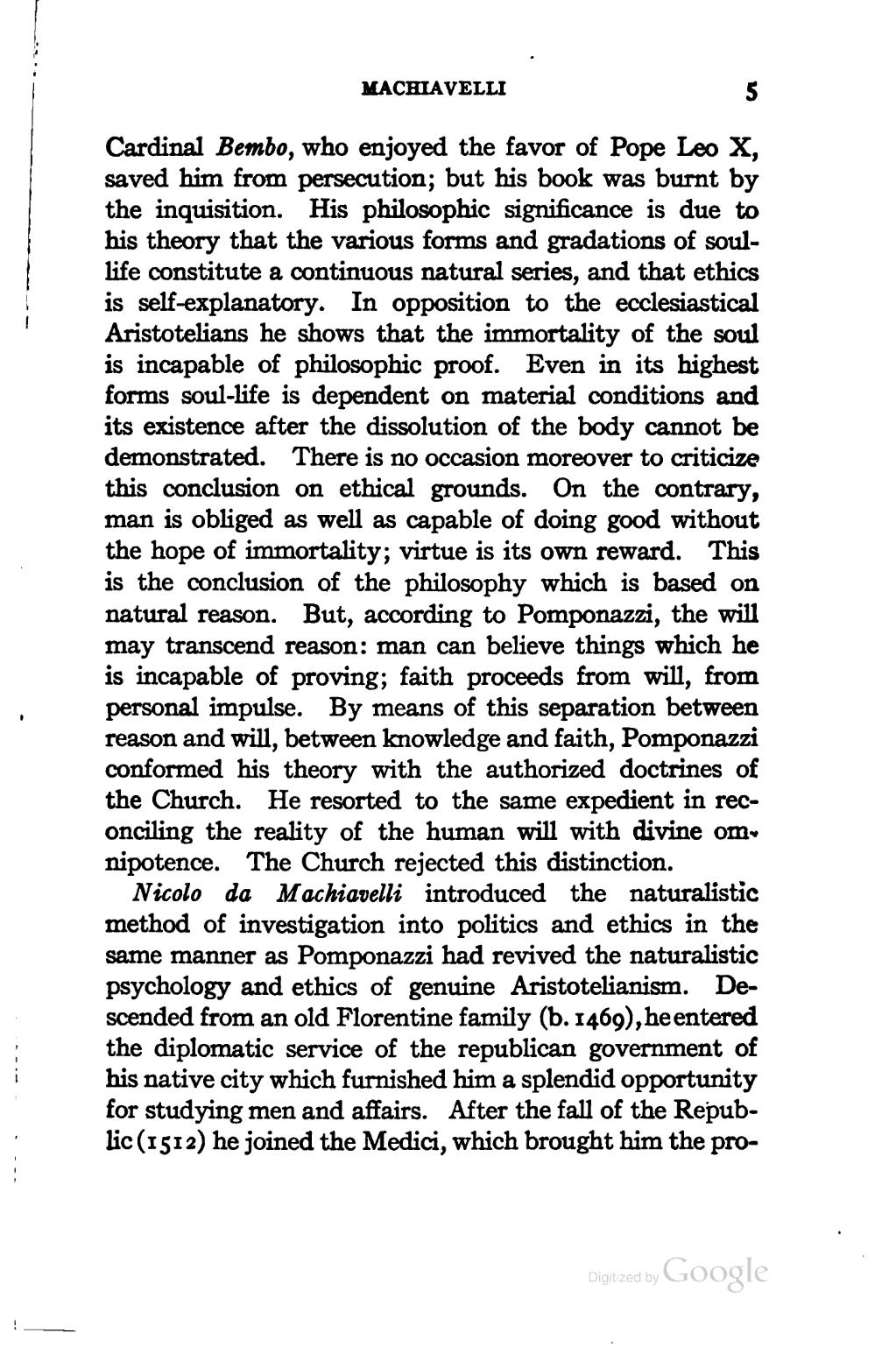Cardinal Bembo, who enjoyed the favor of Pope Leo X, saved him from persecution; but his book was burnt by the inquisition. His philosophic significance is due to his theory that the various forms and gradations of soul-life constitute a continuous natural series, and that ethics is self-explanatory. In opposition to the ecclesiastical Aristotelians he shows that the immortality of the soul is incapable of philosophic proof. Even in its highest forms soul-life is dependent on material conditions and its existence after the dissolution of the body cannot be demonstrated. There is no occasion moreover to criticize this conclusion on ethical grounds. On the contrary, man is obliged as well as capable of doing good without the hope of immortality; virtue is its own reward. This is the conclusion of the philosophy which is based on natural reason. But, according to Pomponazzi, the will may transcend reason: man can believe things which he is incapable of proving; faith proceeds from will, from personal impulse. By means of this separation between reason and will, between knowledge and faith, Pomponazzi conformed his theory with the authorized doctrines of the Church. He resorted to the same expedient in reconciling the reality of the human will with divine omnipotence. The Church rejected this distinction.
Nicolo da Machiavelli introduced the naturalistic method of investigation into politics and ethics in the same manner as Pomponazzi had revived the naturalistic psychology and ethics of genuine Aristotelianism. Descended from an old Florentine family (b. 1469), he entered the diplomatic service of the republican government of his native city which furnished him a splendid opportunity for studying men and affairs. After the fall of the Republic (1512) he joined the Medici, which brought him the
